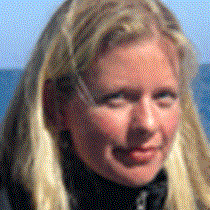Dorian Bay and Palmer Station, Antarctica
Penguins seem such gentle creatures. They stand around on rocks quietly, they lay on their nests incubating their eggs quietly, they shuffle slowly and with many pauses from the shore to their nests quietly. They look so sweet and innocent. But then one of these sweet quiet creatures shuffles over to another penguin nest, innocently looks towards the distance horizon as if simply contemplating which way to go next, and then – reaches down and steals a rock from his neighbor! Thief! The owner of the nests where the rock has been stolen, swings his or her head around wildly trying to snap at the perpetrator, but to no avail and the thief happily hops back to his own nest to present the pebble to his partner.
Watching activity like this at Dorian Bay during the course of the morning kept everyone entertained. The clouds hung low, obscuring much of the horizon, though some glimpses of massive mountains loomed into view from time to time. A gentle breeze ruffled the feathers of the waiting skuas. Flying low over the penguin colonies they scanned the nests for easy-to-grab eggs or chicks, the gentoo penguins sounding their distress with deep throaty hissing-like calls.
A charming historic hut gave a spot of color to the landscape at Dorian Bay. A “historic” hut that Rick had helped built not too long ago. Inside, a small kitchen with old stove and tinned foods and the bunkroom at the back painted a picture of how guys used to “rough it” in the past while living and working in Antarctica. It made an interesting contrast to the afternoon visit to Palmer Station. Full of modern conveniences and comfort, it seemed a nice place to stay for a while and we were told and shown what the activities of the U.S. Antarctic Program are all about.
An alternative landing site took people to Torgerson Island where Adelie penguins nested in ever-dwindling numbers. These classic tuxedoed gentlemen of the Antarctic are the penguins most people picture when they think of Antarctica. But their numbers are in serious decline as climate change results in less extensive sea ice – the platform on which their main food source – the krill – depend.




